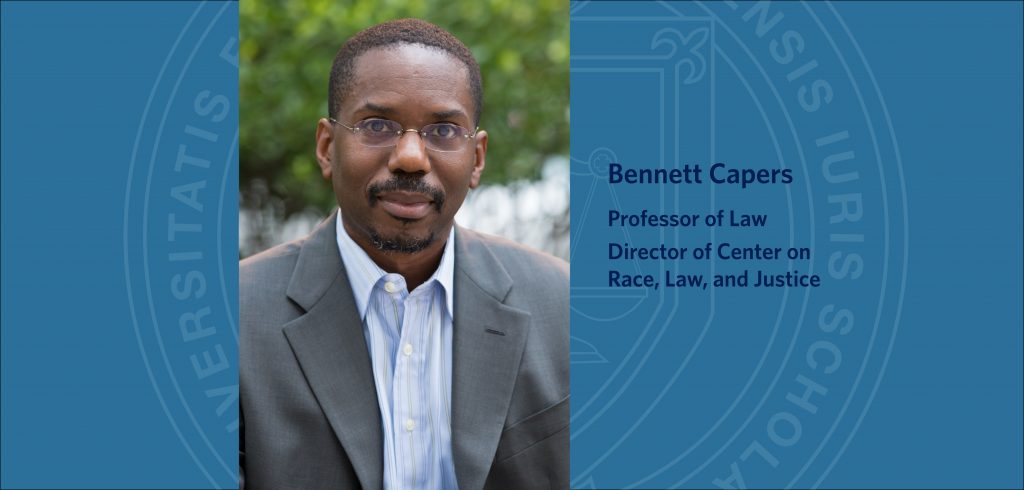Professor Bennett Capers shared his expert opinion with The Guardian in an article examining Pamela Moses and if a new trial will be brought against her for voting error.
The document in question is a form that anyone with a felony conviction has to get filled out if they want to vote. On 3 September 2019, a probation officer signed and filled out the form for Moses and incorrectly said she had completed probation (in Tennessee, people with felonies can only vote once they complete their sentences entirely, including probation). Moses was also ineligible to vote because she was convicted of tampering with evidence, one of a handful of crimes that causes you to permanently lose your voting rights in Tennessee, something the probation officer was also unaware of.
Even though Moses never signed the form, prosecutors still charged her with a felony because they said she knew she was ineligible. She knew she was ineligible, prosecutors argue, because she was trying to run for mayor in 2019 and courts had told her repeatedly that she couldn’t appear on the ballot because she was still on probation.
…
The underlying issue in Moses’ case is whether she knew was ineligible to vote when the probation officer signed off on the form. So it could be potentially significant to know what, if anything, election officials told her about going through the process. “It may not be the ‘smoking gun’ that requires an acquittal, but this still supports her version that she received a permissive letter and therefore did not knowingly make a false entry,” said Bennett Capers, a former federal prosecutor who teaches law at Fordham University.

